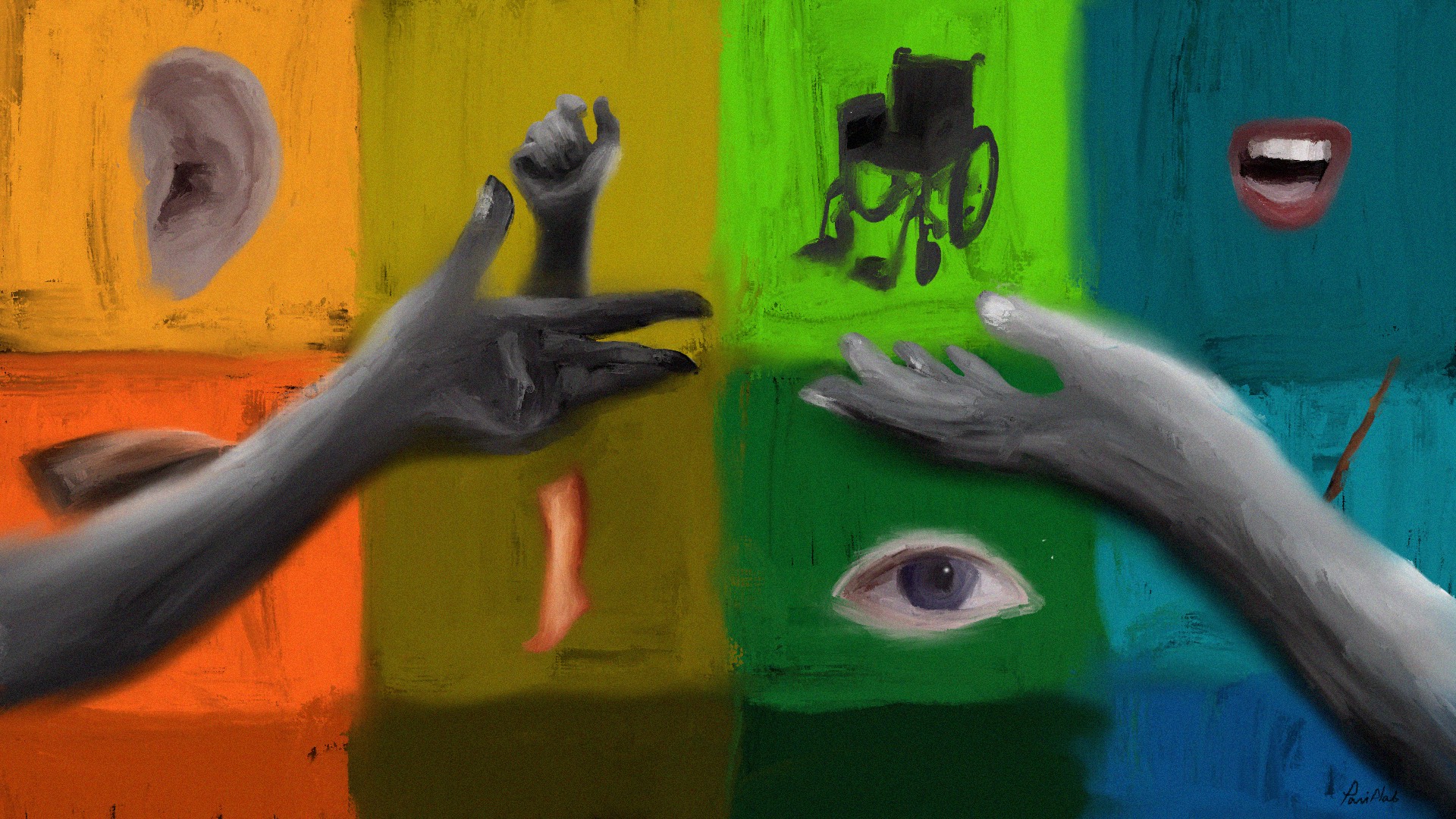It is the time of pandemic and very clearly, COVID-19 has spread across all corners of the globe. Meanwhile, we are busy collecting information from all authentic sources available, and making sure that our near and dear ones are informed and secure from the virus. I am all ears to practicing social distancing, quarantining oneself if exposed to ‘risks’ or isolating oneself if symptomatic.
However, we are taking our eyes off the most vulnerable sections of the society – migrant workers, the homeless, orphans and the disabled.
If you look at the number of cases and number of deaths across the globe, you will find that the dependent population are the most affected while we only focus on those above 50. Yes, we do need to take care of the old, but one cannot ignore the other vulnerable sections of the society.
I wish to draw your attention toward people living with disability (ies). I decided to write this article after reading about some disability groups filing a complaint against the federal government’s COVID-19 care rationing plans in the US.
Forget strategic measures to help people with disabilities and those living with chronic illnesses, their problems are mostly left out entirely during coronavirus discussions. The UN Special Rapporteur on the rights of persons with disabilities cautioned that very little has been done to provide guidance and support to the community and “people with disabilities feel they are left behind”.
To talk about preparedness, it is important to know how the pandemic affects such people differently, so that one could plan the mitigation and preparedness strategies accordingly. It is the specific form of disabilities that make the person more vulnerable, especially intellectual disabilities and behavioural disorders among children.
In such cases, adherence to behavioural practices is not easy as it sounds. It is difficult for parents to help the child follow the behavioural precautions against COVID-19 such as sanitation, hygiene and self-care tasks on a regular basis. Further, unnecessary poking and constantly asking them to sanitise themselves would make them more uneasy and anxious.
Also read: COVID-19: The Joys of Silence and Coming Together
Behavioural practices, such as social distancing, is daunting for them. Social distancing is in general ‘normal’ for them, but social distancing in this case leads to double stigmatisation: on one hand cutting them off from any possibility of social networking and, less medical care on the other. In case of children, there is family or caregiver to look after, but adults living independently are quite cut off from usual routine.
During lockdown, regular sanitising, getting food and other essential commodities isn’t an easy task.
Nipun Malhotra (with a rare congenital disability) posted a video on challenges during coronavirus outbreak. “Somebody like me cannot practice social distancing because I am dependent on others for my basic physiological need, I cannot even wash my hands, because I am dependent on somebody else, who would wash my hands which itself is a physical touch,” he said.
Disability, social isolation and Covid-19 https://t.co/9SygvzlRsm
— Nipun Malhotra (@nipunmalhotra) March 23, 2020
Persons with disabilities and with chronic conditions are more at risk amidst a nationwide lockdown. The non-availability of emergency related equipments, poor supplies of medications, nursing facilities, security, and other institutional obstructions pose a major public health challenge to them. It is definitely about accessibility, but also about the nature of services available. For instance, if nursing care is required round the clock at someone’s home; he/she/they would remain prone to the viral infection in case the resource person is required at the hospital. Henceforth, the risk multiplies.
Besides, there is a full-fledged possibility of discontinued care, especially for children with developmental disabilities in their early years. Researches have shown that early interventions and early care management are beneficial for developmental and intellectual disabilities. In view of this lockdown, the children and their families will not be having regular access to community caregivers (only emergency conditions to be dealt at health care centres). In this scenario, decentralised home-based care and follow-ups through telephonic consultations can be a good way of supervision, not just in terms of care management but also to keep a tab on potential health risks.
So far, every measure is being taken to create and spread the correct and appropriate information to as many people as possible.
However, it doesn’t cater to the needs of persons with disabilities. For instance – is information available in readable sign languages? Do we have audio recordings? Do the guidelines categorically talk about the risks, challenges and preparedness for persons with disabilities?
The government needs to take some measures as soon as possible. It is important to emphasise here that persons with disabilities don’t need special attention only at this hour, but at other times too – in terms of availability of essential resources, and accessibility to support systems.
At the personal level, the time is now. If you know someone with a disability – be their support system; be there for them in during this time. We have to stand in solidarity in the face of this crisis.
Lochan Sharma is a PhD scholar in social medicine and community health at Jawaharlal Nehru University
Featured image credit: Pariplab Chakraborty

